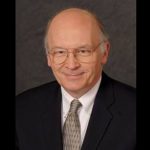By Lara Salahi – ABC News
The first child in history to receive a trachea fashioned by his own stem cells has shown remarkable progress since the initial transplant two years ago, marking a new record for the novel procedure.

Two Years On – a stunning recovery for Ciaran Finn Lynch following his trachea transplant using his own adult stem cells from his bone marrow.
Ciaran Finn-Lynch, the now 13-year-old boy (pictured above) from the UK who the world’s first child to receive the stem cell trachea transplant, is breathing normally and no longer needs anti-rejection medication, researchers reported in a paper published Wednesday in the journal Lancet.
The organ itself is strong, has not shown signs of rejection, and has even grown 11 centimeters since it had been transplanted, according to the researchers.
Ciaran was born with a rare condition known as Long Segment Tracheal Stenosis, marked by a small windpipe that does not grow and can restrict breathing. He underwent the stem cell transplant in March 2010 after a standard trachea transplant did not work.
Researchers at the Great Ormond Street Hospital for Children, the Karolinska Institute in Stockholm and the University College London, stripped cells from a donor trachea and then used Ciaran’s own bone marrow stem cells to rebuild the airways in the body. They also infused growth proteins to generate the tissue lining.
Using a patient’s own stem cells not only could help to rebuild the fragile tissue, but also potentially could bypass the risk of having the organ rejected. A trachea is considered a difficult tissue to grow and transplant since it has a limited blood supply, according to Dr. Bill Putnam, professor and chair of the department of thoracic surgery at Vanderbilt University Medical Center, who was not involved in the research.
“I don’t think there’s anything standard about a tracheal transplant,” said Putnam. “The fact that this single patient has survived for two years is worthy of notice.”
Full article can be viewed at ABC News






